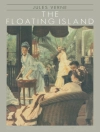In George Mac Donald’s seminal work, ‘Phantastes, ‘ the reader embarks on a dreamlike journey through a fantastical realm, a fantasy that intricately weaves allegory with rich symbolism. The narrative follows young Anodos as he explores a world filled with mystical beings and profound moral challenges, embodying the Victorian fascination with the intersection of reality and the imagination. Mac Donald’s lyrical prose and imaginative depth situate this novel as a precursor to modern fantasy literature, profoundly influencing authors such as C.S. Lewis and J.R.R. Tolkien, while also reflecting themes of self-discovery, spirituality, and transformation. George Mac Donald was a Scottish author, poet, and Christian minister whose work often grappled with the complexities of faith and the human experience. His pioneering engagement with fantasy as a serious literary form stemmed from his deep belief in the transformative power of storytelling and his ambition to illuminate the divine through narrative. His own struggles with faith and personal tragedy informed the dreamlike yet moralistic structure of ‘Phantastes, ‘ illustrating a broader cultural and religious introspection prevalent during the 19th century. ‘Phantastes’ is an essential read for anyone intrigued by the roots of modern fantasy literature or the interplay of spirituality and storytelling. Mac Donald’s enchanting prose invites readers to not only lose themselves in a vivid imaginative realm but also to reflect on their personal quests for meaning and understanding. It is a timeless exploration of the human soul that resonates as profoundly today as it did over a century ago.
About the author
George Mac Donald (1824-1905) was a pioneering figure in the field of fantasy literature and a mentor to fellow writer Lewis Carroll. Born in Aberdeenshire, Scotland, he became a respected author and Christian minister known for his captivating storytelling and profound spiritual insights. Mac Donald’s literary style often weaved together the narrative traditions of the fairy tale with deep theological and moral themes. His work ‘Phantastes: A Faerie Romance for Men and Women’, first published in 1858, is a seminal piece in the fantasy genre and greatly impacted notable authors such as C.S. Lewis, who claimed that reading ‘Phantastes’ ‘baptized’ his imagination. In ‘Phantastes’, Mac Donald explores themes of love, redemption, and self-discovery, through a richly allegorical narrative embodied in the adventures of its protagonist, Anodos. Mac Donald’s use of symbolic landscapes and supernatural encounters within ‘Phantastes’ set a precedent for many fantasy works that followed. His influence on the Inklings, particularly on Lewis and J.R.R. Tolkien, and the broader spectrum of modern fantasy literature, is widely acknowledged and celebrated. Beyond ‘Phantastes’, Mac Donald is known for other notable works such as ‘The Princess and the Goblin’ and ‘At the Back of the North Wind’, which further establish his place as a foundational voice in the canon of English literature.












